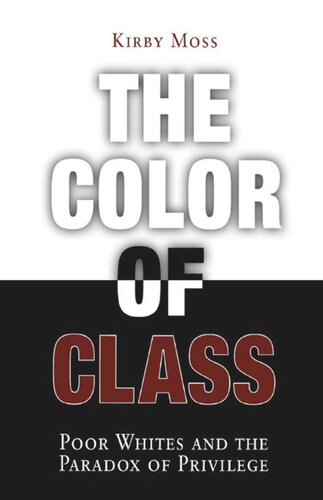

Most ebook files are in PDF format, so you can easily read them using various software such as Foxit Reader or directly on the Google Chrome browser.
Some ebook files are released by publishers in other formats such as .awz, .mobi, .epub, .fb2, etc. You may need to install specific software to read these formats on mobile/PC, such as Calibre.
Please read the tutorial at this link: https://ebookbell.com/faq
We offer FREE conversion to the popular formats you request; however, this may take some time. Therefore, right after payment, please email us, and we will try to provide the service as quickly as possible.
For some exceptional file formats or broken links (if any), please refrain from opening any disputes. Instead, email us first, and we will try to assist within a maximum of 6 hours.
EbookBell Team

4.7
86 reviews"Even though we lived a few blocks away in our neighborhood or sat a seat or two away in elementary school, a vast chasm of class and racial difference separated us from them."—From the Introduction
What is it like to be white, poor, and socially marginalized while, at the same time, surrounded by the glowing assumption of racial privilege? Kirby Moss, an African American anthropologist and journalist, goes back to his hometown in the Midwest to examine ironies of social class in the lives of poor whites. He purposely moves beyond the most stereotypical image of white poverty in the U.S.—rural Appalachian culture—to illustrate how poor whites carve out their existence within more complex cultural and social meanings of whiteness. Moss interacts with people from a variety of backgrounds over the course of his fieldwork, ranging from high school students to housewives. His research simultaneously reveals fundamental fault lines of American culture and the limits of prevailing conceptions of social order and establishes a basis for reconceptualizing the categories of color and class.
Ultimately Moss seeks to write an ethnography not only of whiteness but of blackness as well. For in struggling with the elusive question of class difference in U.S. society, Moss finds that he must also deal with the paradoxical nature of his own fragile and contested position as an unassumed privileged black man suspended in the midst of assumed white privilege.